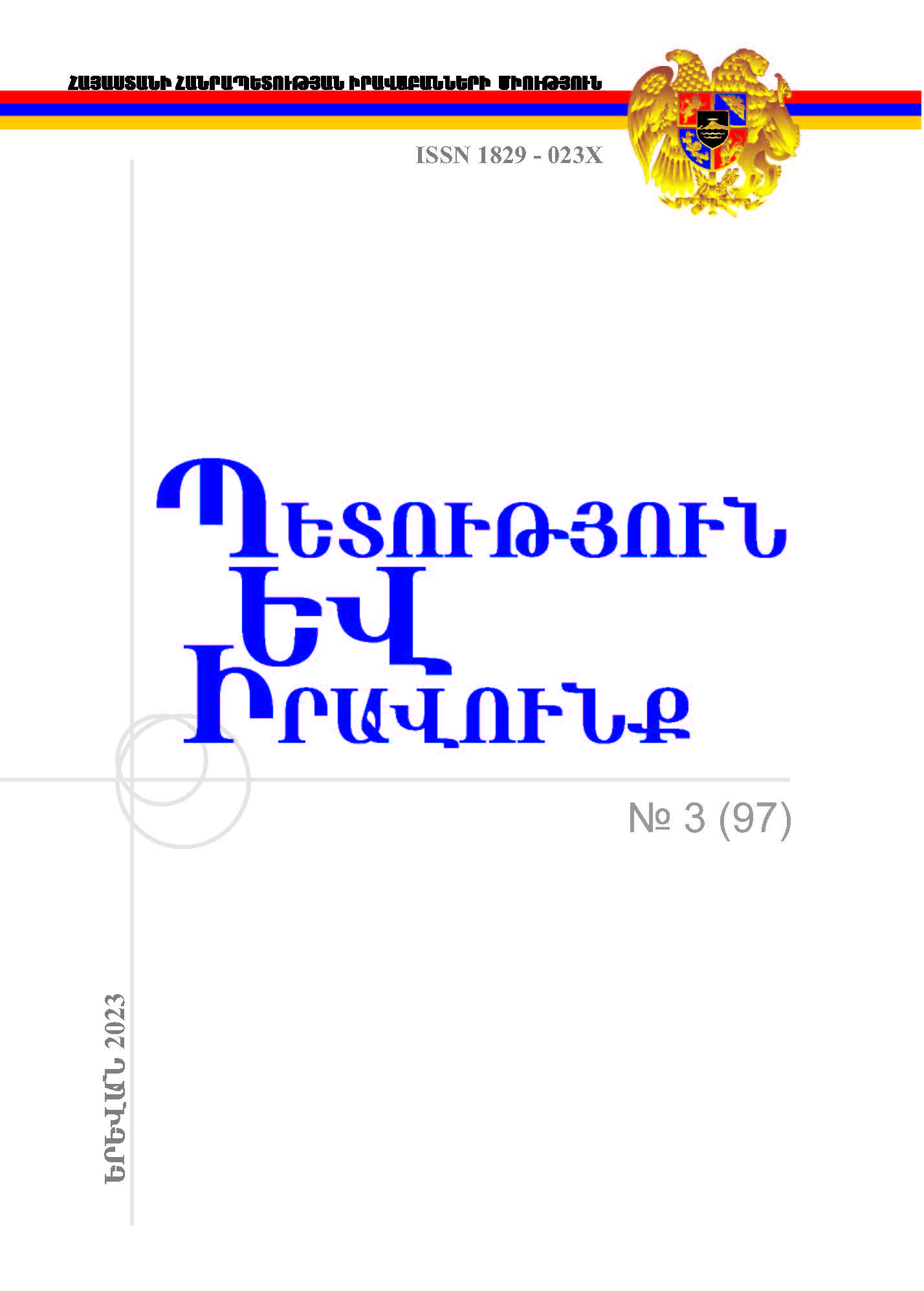ASSESSMENT OF THE LEGAL FRAMEWORK OF DECENTRALIZED GOVERNANCE OF NATURAL RESOURCES AND ENVIRONMENT IN ARMENIA
DOI:
https://doi.org/10.46991/SL/2023.97.005Keywords:
powers of local self-governance authorities, local governance of natural resources, local governance of environment, decentralization, community amalgamationsAbstract
The scholarship and policy discourse on decentralization are increasingly recognizing the importance of local communities in addressing environmental degradation and ensuring sustainable use of natural resources, all while maximizing the benefits to the communities. In Armenia, local governance has experienced inefficiencies in capacities and provision of public services for decades. The state amalgamation policy, under which 915 communities have been merged into 64, had one of its objectives to overcome the mentioned inefficiencies also by increasing economic, financial and environmental benefits to the communities from the improved access to natural resources and environmental conservation.
In light of this scholarly and policy debate, this paper, drawing on significant empirical data, evaluates, for the first time, the extent of decentralization of natural resources and environmental governance in Armenia. We find that decentralization in the field concerned is occurring at a very slow pace, and the amalgamation reform has had no observable impact on the status qua since regulatory, capacity and accountability gaps in decentralization remain unaddressed.
Downloads
Published
Issue
Section
License
Copyright (c) 2024 State and Law

This work is licensed under a Creative Commons Attribution-NonCommercial 4.0 International License.

